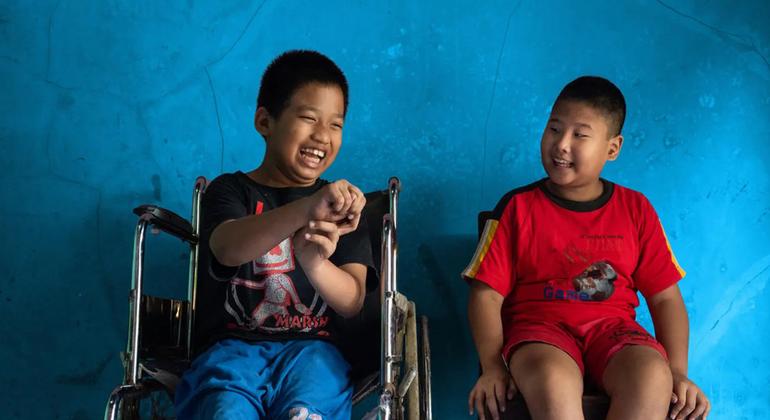More than 240 million children worldwide are living with some form of disability, an alarming figure that underscores the urgent need to create a more inclusive society. In this context, the Global Disability Summit is underway, aiming to mobilize global efforts to improve the inclusion of people with disabilities in all areas of life. This event, bringing together representatives from governments, international organizations, the private sector, academics, and civil society, seeks to establish new commitments to protect the rights of this vulnerable group.
In its third edition, the Summit has introduced significant initiatives that are scheduled for the next five years, with the goal of integrating disability into humanitarian systems on a global and national level. A notable commitment comes from UNICEF, which has announced that it will allocate 10% of its total budget to accelerate the inclusion of children with disabilities by 2030. This allocation of resources is designed to strengthen various areas, including access to quality data on this population, aiming to support at least 50 countries in collecting information that meets international standards.
Furthermore, UNICEF has committed to improving access to assistive technologies, benefiting five million people with a special focus on children. To achieve this, work will be done to create multisectoral early intervention systems in 50 countries, providing personalized services to children with developmental delays and their families.
The aim is also to strengthen inclusive social protection and child protection systems, addressing development contexts, humanitarian situations, and forced displacement. Through collaboration with governments and partners in 60 countries across seven regions, UNICEF aims to create a safer and more accessible environment for these children and their families.
In terms of education, it is expected that at least 50 countries will implement improvements in access and learning for children with disabilities from early childhood, working closely with organizations dedicated to inclusive education. UNICEF thus reaffirms its commitment to collaborate with various entities to ensure the rights of children and adults with disabilities in over 100 municipalities affected by humanitarian crises in countries such as Burkina Faso, Chad, Mali, Mauritania, and Niger.
The next edition of the Global Disability Summit is scheduled for April 2 and 3, 2025, organized by the International Disability Alliance, the Government of Germany, and the Government of Jordan.
Referrer: MiMub in Spanish










